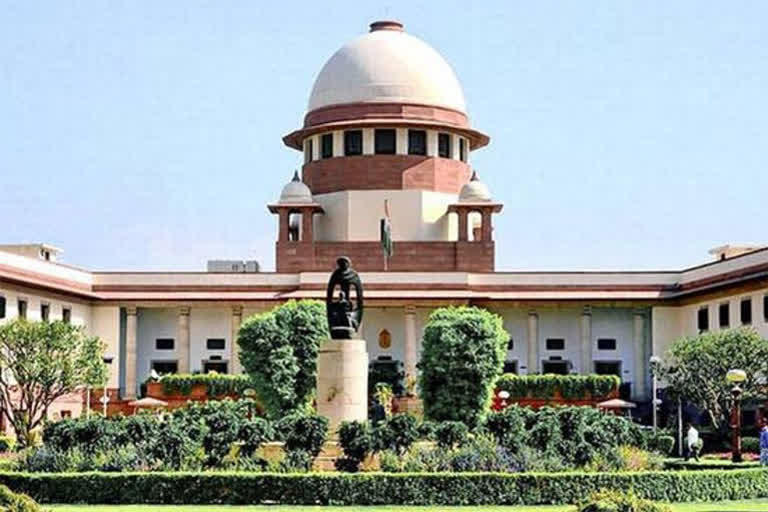New Delhi: The Supreme Court on Tuesday allowed 'Nirvani Akahara', one of the Hindu parties in the decades-old case of Ram Janmbhoomi-Babri Masjid land dispute in Ayodhya, to file a written note seeking the "right to manage worship of the deity" as 'shebait' (devotee) at the site.
A counsel for 'Nirvani Akahara' mentioned the matter before a bench headed by Chief Justice Ranjan Gogoi and said his client "miscalculated" the 3-day time granted by the court for filing the written note on moulding of relief, an alternate relief if primary relief of title was not granted.
"You file it now," the bench, which also comprised Justices S A Bobde and S A Nazeer, told senior advocate Jaideep Gupta who was representing 'Nirvani Akhara'.
Both 'Nirmohi Akahara' and its rival 'Nirvani Akahara' are seeking right to manage and offer 'puja' at the birthplace of deity 'Ram Lalla Virajman' at the site.
While 'Nirmohi Akahara' had filed a lawsuit in 1959 seeking the right as 'shebait', 'Nirvani Akahara' has been made a party (defendant) in two separate lawsuits filed by Uttar Pradesh Sunni Central Wakf Board and deity 'Ram Lalla', through next friend Deoki Nandan Agrwal, in 1961 and 1989 respectively.
"It is humbly submitted that none of the parties (amongst) Hindus in the aforementioned suits have made claims...for shebaitship right and are instead claiming either as the owner or as a next friend (of deity) ...and thereby seeking to build a temple at the disputed structure.
The Akahara has sought a direction that it be handed over the "right to manage the worship of the deity of the Ram Janambhoomi/disputed structure as the 'pujari' and/or 'shebait' of the deity".
During the hearing, it had said that Mahant Abhiram Das, now deceased, of Nirvani Akahara was the priest at the site in 1949 and he was also made an accused in the FIR lodged for alleged placing of idols below the central dome of the disputed site on the intervening night of December 22-23, 1949. Now his 'chela' Dharam Das is the priest, it had added.
Earlier, the Muslim parties, including the Sunni Wakf Board, had filed the written note on moulding of relief in Supreme Court and had said the verdict in the Ayodhya land dispute case will impact "future generations" and have "consequences" for the country's polity.
The Constitution bench had reserved the verdict on October 16 after concluding the 40-day-long hearing in the politically sensitive land dispute case and had asked the litigating parties to submit their written note within three days on "moulding of reliefs" so that the court can narrow down the issues needed to be adjudicated upon in the vexatious issue.



